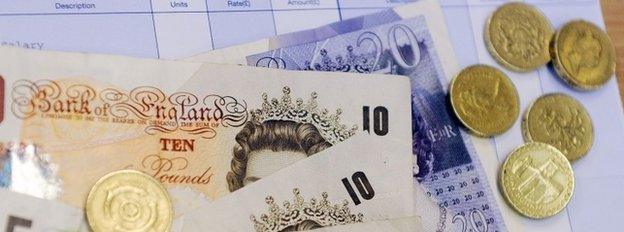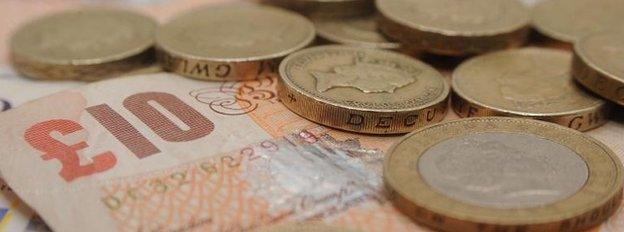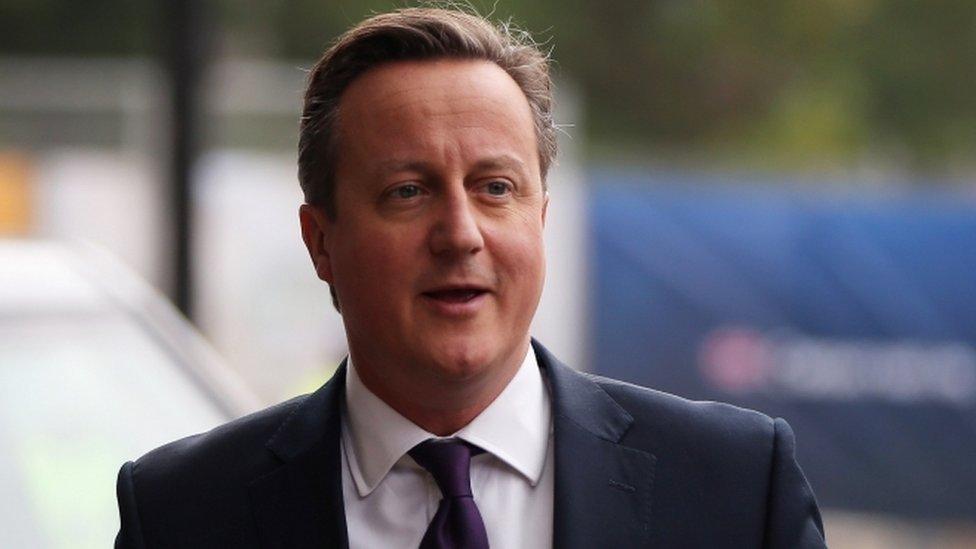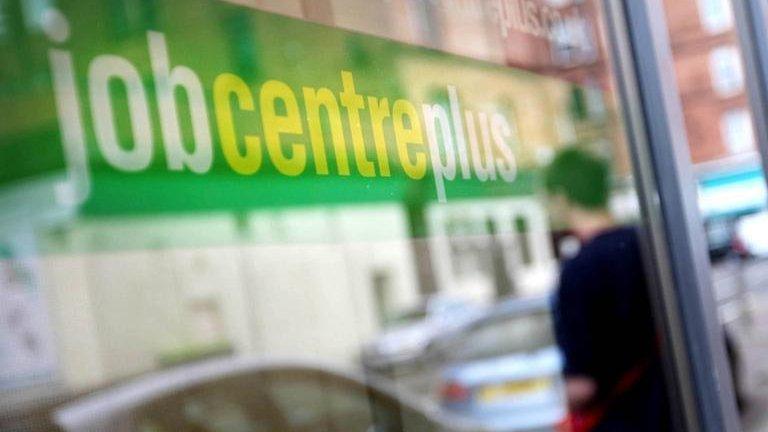Tax credits debate: Finding your way
- Published

Tax credit entitlement can be complicated to work out
Conservative peer Lord Ashton must have had a crystal ball when fielding questions on tax credits in September.
"The trouble with this subject is that we could sit swapping statistics all day long," he told the House of Lords.
That is what has actually happened for weeks.
Prime Minister David Cameron and Chancellor George Osborne vowed to stick to their guns on tax credit changes, suggesting nine out of 10 people would benefit from the tax, welfare and wage changes announced in the Budget.
Think tanks and analysts have spoken of how tax credit claimants would lose hundreds of pounds in entitlement from April.
In its tax credit guide, external, consumer group Which? says it is "virtually impossible" for people claiming tax credits to work out what they are entitled to.
This debate on the impact of planned changes is hardly making it any clearer, but here we look at what they will really mean.

How are tax credits changing?

At present, people receive the maximum level of tax credits if their annual household income is below a threshold of £6,420. From April, that income threshold will go down to £3,850.
So, when household income goes over £3,850, tax credits start to be withdrawn for every extra pound earned.
Tax credit entitlement for those with an income of above £3,850 will be taken away quicker as their income rises. In technical terms, the taper rate will change from 41% to 48%.
In addition, claimants whose household income increases by up to £5,000 during the tax year currently have that rise ignored when entitlement is calculated for that year. From April, this will be reduced so that any increase in income of more than £2,500 will be taken into account.
In a year there will be further changes. Any family which has a third or subsequent child born after April 2017 will not qualify for more child tax credit.

How do I know if I am affected?
Letters are being sent out to claimants in a few weeks' time to explain the changes to their entitlement. That, according to benefit advisers, will be the moment of reality for many people - especially those who are not following the news particularly closely.
In the meantime, there is a tax credit calculator, external available for claimants, run by HM Revenue and Customs, which administers tax credits.

What should claimants do now?

The reality for many people is that there will be a "black hole in their budget" in April, according to Lee Healey, managing director of benefits adviser IncomeMAX.
"People have six months, so now is the time to prepare," he says.
He suggests that people bear in mind that the calculation of their tax credits is likely to change, so they need to alter the calculations in their household budget. With some recipients potentially receiving hundreds of pounds less than now, they should also start exploring ways to save such as reviewing and switching energy and telecoms providers, he says.
Another good way to prepare is by ensuring the annual tax credit renewal pack - which checks all income and personal details are correct - is returned as quickly as possible, Mr Healey says.

Overall, will claimants be worse off?

Anyone receiving tax credits with a household income above the new threshold of £3,850 will receive less in tax credits from April than they do now.
Whether they will actually be worse off is at the heart of the current debate.
Mr Osborne says that the rising minimum wage, tax changes, the introduction of the National Living Wage and entitlement to free childcare will actually mean the vast majority of families will be better off.
That is not a view shared by Frank Field, the Labour chairman of the Commons Work and Pensions Committee. He says: "Even if his [Mr Osborne's] calculations are correct, he is still launching a dive-bomb attack on Britain's strivers from April until 2020."

What exactly does the government say?
Mr Osborne says that nine out of 10 families will be better off when all of the changes made in his Budget are considered. To isolate tax credits in this debate would be misleading, he says.
The government wants to reduce tax credit spending and says that measures - most notably increasing the level of earnings that are free of income tax - will help to compensate.

He claims that the typical family, with someone working full-time on the minimum wage, would be more than £2,000 a year better off, by taking all these policies into account.
The source of that claim, made at the start of the conference, were figures published by the Treasury, external at the time of the summer Budget.
The rise of £2,480, for the type of family mentioned, would see their net income go up from £26,040 in 2015-16 to £28,510 in 2020-21.

What are others saying?
Groups, such as the Resolution Foundation think tank and the independent Institute for Fiscal Studies (IFS), basically make two key points to counter the chancellor's argument.
Firstly, all the Budget changes do not come into effect at the same time. For example, the most significant cuts in tax credits take effect in April, but the point at which the National Living Wage hits £9 an hour will not come until 2020.
Secondly, Mr Osborne's "typical family" fails to make it clear who are the winners and who are the losers. For example the Resolution Foundation points out that the National Living Wage compensates only 13% of the lost income faced by the poorest 50% of households following the Budget.
"We estimate that 'a standard' tax credit family - a single earner couple with children - must be at least £985 a year worse in 2016," the think tank says.
Research by the IFS, external says that 8.4 million working age households, with someone in paid work and receiving benefits or tax credits, will lose £750 a year, and only gain £200 a year from the National Living Wage.

How is this playing out in different parts of the UK?
In Scotland, the SNP has used figures from the Scottish Parliament Information Centre (Spice) to claim that 197,200 families - with a total of 346,000 children - would have less cash under the tax credit reforms.
In Northern Ireland, an official analysis of the budget by the Department for Social Development (DSD) suggested that 120,000 households would have their tax credit payments reduced as a result of the July Budget, with an average household loss of £918 a year.
Carwyn Jones, the First Minister of Wales, has said that the National Living Wage will not compensate for the loss of tax credits.
- Published4 October 2015

- Published11 November 2015

- Published30 September 2013

- Published15 February 2015
